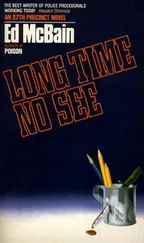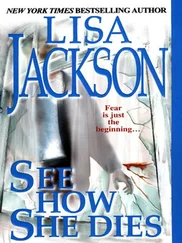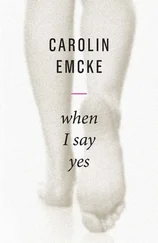Ed McBain - Sadie When She Died
Здесь есть возможность читать онлайн «Ed McBain - Sadie When She Died» весь текст электронной книги совершенно бесплатно (целиком полную версию без сокращений). В некоторых случаях можно слушать аудио, скачать через торрент в формате fb2 и присутствует краткое содержание. Жанр: Полицейский детектив, на английском языке. Описание произведения, (предисловие) а так же отзывы посетителей доступны на портале библиотеки ЛибКат.
- Название:Sadie When She Died
- Автор:
- Жанр:
- Год:неизвестен
- ISBN:нет данных
- Рейтинг книги:4 / 5. Голосов: 1
-
Избранное:Добавить в избранное
- Отзывы:
-
Ваша оценка:
- 80
- 1
- 2
- 3
- 4
- 5
Sadie When She Died: краткое содержание, описание и аннотация
Предлагаем к чтению аннотацию, описание, краткое содержание или предисловие (зависит от того, что написал сам автор книги «Sadie When She Died»). Если вы не нашли необходимую информацию о книге — напишите в комментариях, мы постараемся отыскать её.
Sadie When She Died — читать онлайн бесплатно полную книгу (весь текст) целиком
Ниже представлен текст книги, разбитый по страницам. Система сохранения места последней прочитанной страницы, позволяет с удобством читать онлайн бесплатно книгу «Sadie When She Died», без необходимости каждый раз заново искать на чём Вы остановились. Поставьте закладку, и сможете в любой момент перейти на страницу, на которой закончили чтение.
Интервал:
Закладка:
And then, despite her protestations, two days ago, that she did not want to talk about her grand amour, the band began playing the Beatles’ “Something” and her eyes misted over, and the next thing Kling knew he was being treated to a monologue about her lover. The man, she confessed, had until just recently been married, and there were still some complications, but she expected they would be cleared up within the next several months, at which time she hoped to become his wife. She did not say what the complications were, but Kling surmised she was talking about a divorce settlement or some such; at this point, he could not have cared less. He had been warned, true, but spending a Saturday night with someone who talked about another man was akin to taking one’s mother to a strip joint, maybe worse. He tried to change the subject, but the power of “Something” prevailed, and, as the band launched into a second chorus, Nora similarly launched into her second chorus, so that the music seemed to be accompanying her little tone poem.
“We met entirely by accident,” she said, “though we learned later that actually we could have met at any time during the past year.”
“Well, most people meet entirely by chance,” Kling said.
“Yes, of course, but this was just the most remarkable coincidence.”
“Mmm,” Kling said, and then launched into what he considered a provocative and perhaps completely original observation on The Beatles Phenomenon, remarking that their rise and fall had encompassed a mere five years or so, which seemed significant when one remembered that they were a product of the space age, where speed was of the essence and . . .
“He’s so far superior to me,” Nora said, “that sometimes I wonder what he sees in me at all.”
“What does he do for a living?” Kling asked, thinking Ho-hum.
Nora hesitated for only an instant. But because her face was such a meticulous recorder of anything she felt, he knew that what she said next would be a lie. He was suddenly terribly interested.
“He’s a doctor,” Nora said, and turned her eyes from his, and lifted her drink, and sipped at it, and then glanced toward the bandstand.
“Is he on staff any place?”
“Yes,” she said immediately, and again, he knew she was lying. “Isola General.”
“Over on Wilson Avenue?” he asked.
“Yes,” she said.
Kling nodded. Isola General was on Parsons and Lowell, bordering the River Dix.
“When do you expect to be married?” he asked.
“We haven’t set the date yet.”
“What’s his name?” Kling asked conversationally, and turned away from her, and lifted his own glass, and pretended to be completely absorbed in the band, which was now playing a medley of tunes from the forties, presumably for the Serutan members of their audience.
“Why do you want to know?” Nora asked.
“Just curious. I have a thing about names. I think certain names go together. If, for example, a woman named Freida did not eventually hook up with a man named Albert, I would be enormously surprised.”
“Who do you think a ‘Nora’ should hook up with?”
“A ‘Bert,’” he said immediately and automatically, and was immediately sorry.
“She’s already hooked up with someone whose name isn’t ‘Bert.’ ”
“What is his name?” Kling asked.
Nora shook her head. “No,” she said. “I don’t think I’ll tell you.”
It was twenty minutes to twelve.
True to his promise, Kling paid the check, hailed a taxicab, and took Nora home. She insisted that it wasn’t necessary for him to come up in the elevator with her, but he told her there’d been a woman killed here in this very building less than a week ago, and since he was a cop and all, armed to the teeth and all, he might just as well accompany her. Outside the door to her apartment, she shook hands with him and said, “Thank you, I had a very nice time.”
“Yes, me, too,” he answered, and nodded bleakly.
He got back to his apartment at 12:25, and the telephone rang some twenty minutes later. It was Steve Carella.
“Bert,” he said, “I’ve arranged with Pete to put a twenty-four-hour tail on Fletcher, and I want to handle the first round myself. You think you can go with Meyer tomorrow when he hits Thornton?”
“Hits who ?”
“The second guy in Sarah Fletcher’s book.”
“Oh, sure, sure. What time’s he going?”
“He’ll be in touch with you.”
“Where are you, Steve? Home?”
“No, I’ve got the graveyard shift. Incidentally, there was a call for you.”
“Oh? Who called?”
“Cindy Forrest.”
Kling caught his breath. “What’d she say?”
“Just to tell you she’d called.”
“Thanks,” Kling said.
“Good night,” Carella said, and hung up.
Kling put the receiver back on its cradle, took off his jacket, loosened his tie, and began unlacing his shoes. Twice he lifted the receiver from its cradle, began dialing Cindy’s number, and changed his mind. Instead, he turned on the television in time to catch the one o’clock news. The weather forecaster announced that the promised snowstorm had blown out to sea. Kling got undressed, and went to bed.
9
M ichael Thornton lived in an apartment building several blocks from the Quarter, close enough to absorb some of its artistic flavor, distant enough to escape its high rents. Kling and Meyer did not knock on Thornton’s door until 11 A . M ., on the theory that a man is entitled to sleep late on a Sunday morning, even if his name is listed in a dead lady’s address book.
The man who opened the door was perhaps twenty-eight years old, with blond hair and a blond beard stubble. He was wearing pajama bottoms and socks, and his brown eyes were still edged with sleep. They had announced themselves as policemen through the wooden barrier of the closed door, and now the blond man looked at them bleary-eyed and asked to see their badges. He studied Meyer’s shield, nodded, and, without moving from his position in the doorway, yawned and said, “So what can I do for you?”
“We’re looking for a man named Michael Thornton. Would you happen to be . . . ?”
“Mike isn’t here right now.”
“Does he live here?”
“He lives here, but he isn’t here right now.”
“Where is he?”
“What’s this about?” the man said.
“Routine investigation,” Kling said.
The words “routine investigation,” Kling noticed, never failed to strike terror into the hearts of man or beast. Had he said they were investigating a hatchet murder or a nursery school arson, the blond man’s face would not have gone as pale, his eyes would not have begun to blink the way they did. In the land of supersell, the understatement—“routine investigation”—was more powerful than trumpets and kettledrums. The blond man was visibly frightened and thinking furiously. Somewhere in the building, a toilet flushed. Meyer and Kling waited patiently.
“Do you know where he is?” Kling said at last.
“Whatever this is, I know he had nothing to do with it.”
“It’s just a routine investigation,” Kling repeated, and smiled.
“What’s your name?” Meyer asked.
“Paul Wendling.”
“Do you live here?”
“Yes.”
“Do you know where we can find Michael Thornton?”
“He went over to the shop.”
“What shop?”
“We have a jewelry shop in the Quarter. We make silver jewelry.”
“The shop’s open today?”
“Not to the public. We’re not violating the law, if that’s what you’re thinking.”
“If you’re not open to the public . . .”
“Mike’s working on some new stuff. We make our jewelry in the back of the shop.”
Читать дальшеИнтервал:
Закладка:
Похожие книги на «Sadie When She Died»
Представляем Вашему вниманию похожие книги на «Sadie When She Died» списком для выбора. Мы отобрали схожую по названию и смыслу литературу в надежде предоставить читателям больше вариантов отыскать новые, интересные, ещё непрочитанные произведения.
Обсуждение, отзывы о книге «Sadie When She Died» и просто собственные мнения читателей. Оставьте ваши комментарии, напишите, что Вы думаете о произведении, его смысле или главных героях. Укажите что конкретно понравилось, а что нет, и почему Вы так считаете.












